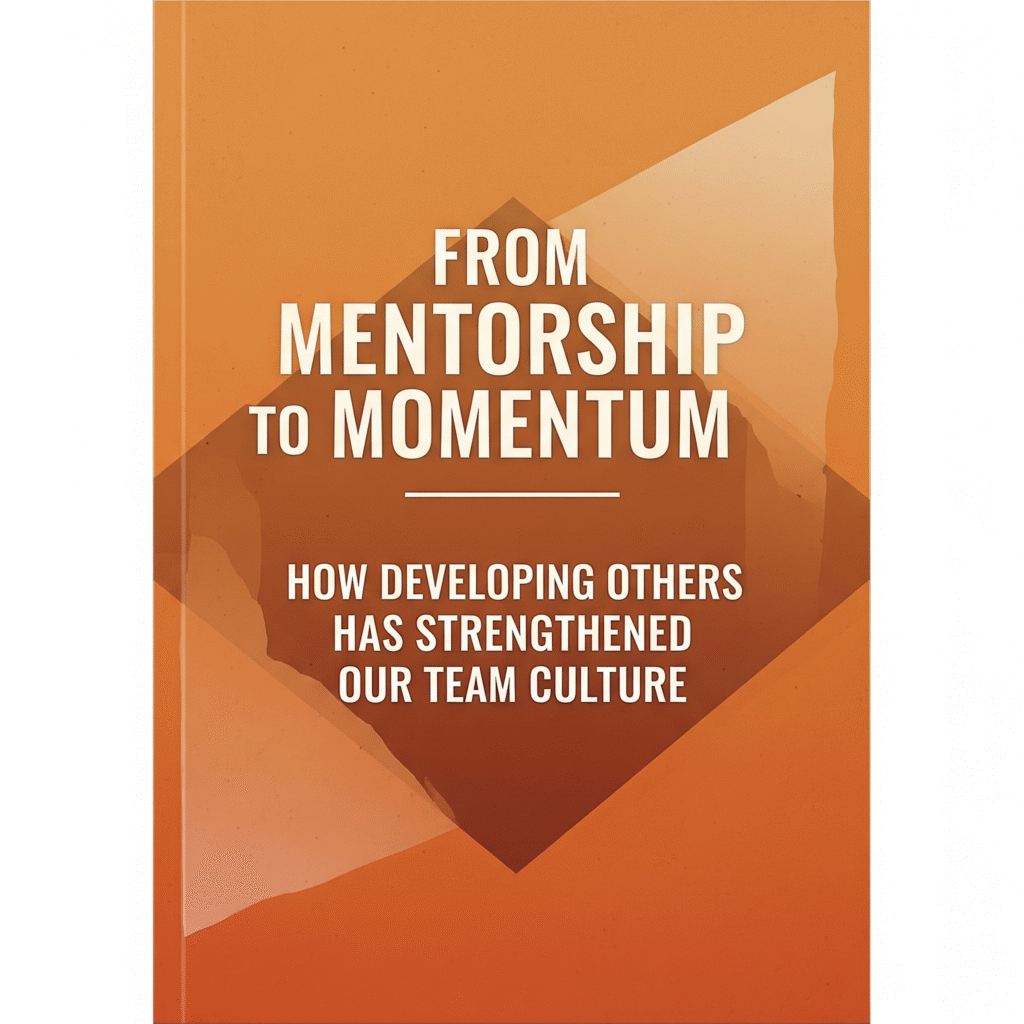Success in leadership isn’t just about delivering results—it’s about cultivating the next generation of leaders. At [Company Name], I’ve always believed that one of the most impactful ways to contribute to a team is by investing in the growth and development of the people around me. Whether in a formal leadership role or as a peer, the time spent mentoring others has created ripple effects far beyond any single project.
The Philosophy: Growth is a Team Sport
People don’t grow in isolation. They grow when they’re supported, challenged, and given room to fail safely. Early in my career, I was fortunate to have a mentor who not only guided me technically but also empowered me to find my voice and own my path. I’ve made it a priority to pay that forward in every role since.
How I’ve Contributed to Developing Others
1. Structured Mentorship Programs
At [Company Name], I initiated a Mentor Circles program—pairing junior team members with senior mentors across departments. The idea was simple: remove silos and create a safe space for knowledge-sharing. Within six months:
75% of participants reported improved confidence in technical and leadership skills.
Two junior engineers earned promotions through targeted development plans we co-created.
2. Peer Coaching and Feedback Culture
Beyond formal programs, I regularly carve out time for 1:1 coaching sessions, helping team members:
Set clear career goals
Navigate cross-functional challenges
Prepare for internal promotions or performance reviews
I emphasize radical candor—giving honest, kind feedback to help people grow.
3. Delegating with Intent
Instead of holding onto critical tasks, I empower team members to take on stretch assignments, even when it means letting go of control. I support them through risk analysis, stakeholder engagement, and retrospective reviews. This “guided ownership” has helped multiple colleagues evolve from contributors to confident decision-makers.
4. Learning Labs and Knowledge Sharing
I helped launch a bi-weekly “Learning Lab,” where team members lead informal sessions on tools, failures, and wins. This not only develops presentation skills but fosters a culture of shared growth and curiosity.
The Impact
Team engagement scores rose by 32% in one year.
We reduced onboarding time for new hires by 40% through peer-led knowledge sessions.
Most importantly, we built a culture where people want to help each other grow—without being asked.
What I’ve Learned
Helping others grow doesn’t slow down productivity—it multiplies it. The more we invest in our people, the more resilient, innovative, and collaborative our teams become. Leadership isn’t about being the smartest in the room—it’s about helping others realize they already are.

